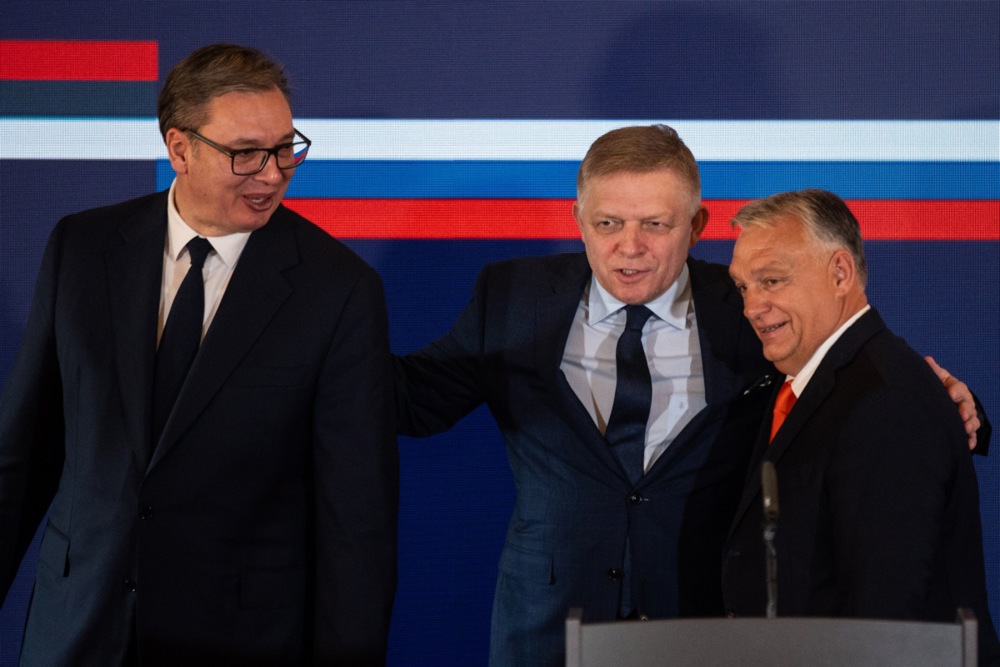Spanish Prime Minister Pedro Sánchez’s crippled Socialist government could soon come to an end — that is if hard-left party Podemos holds to its stance of refusing to support the State budget until two of its demands are fulfilled: severing relations with Israel and a 40 per cent reduction in rent by law. These two measures were approved with 89 per cent of the votes by the Podemos rank and file on October 28. Podemos’ secretary general, Ione Belarra, wanted to have the support of her party’s grassroots before demanding what the government’s official position was.
Both the breaking of diplomatic and commercial relations with Israel and the reduction by law of 40 per cent of the rental price – and the prohibition of purchase for those who are not going to use property for residential purposes – have been the red-lines maintained by the party.
In other words, Podemos has set almost impossible conditions for Sánchez’s Spanish Socialist Workers’ Party (PSOE) to vote in favour of the 2025 budget. With the support of 89 per cent of the participants, Belarra wanted to convey the idea that she was tied hand and foot and could not do anything more than be beholden to her militant members.
With this, Podemos has aimed to strengthen its negotiating position with the coalition government and shake off pressure not to give in to these demands and achieve, as Pablo Iglesias, its former secretary general put it, “bending Sánchez’s arm”.
Having reached a foreseeable point of disagreement with the PSOE, Belarra has the political narrative to, first, justify that she would not give in to the PSOE if she did not get what she was asking for. Secondly, she could seize on the result of the referendum to argue that she would not vote for the budget and put the coalition government in check. Belarra seemed to see the referendum as a shield.

Podemos’ crutch is not the only thing apparently failing Sánchez’s government.
Recently, a long-standing rumour among left-wing and hard-left parties hit the headlines: Íñigo Errejón, former parliamentary spokesman for hard-left Sumar, in an electoral alliance constituted for the 2023 Spanish general election, allegedly took advantage of his political position to sexually abuse several women. That almost sank the Sumar party of Spain’s vice-president Yolanda Díaz.
Sumar was born out of Podemos after a split proposed by Díaz to end the party and thus better serve the interests of Sánchez. Podemos has always been somewhat problematic, as Belarra has pointed out to the party on more than one occasion. With Errejón politically dead in the water, Díaz in the doldrums and possibly “several scandals still to come out”, according to observers, the Spanish Left seems to be undergoing a process of catharsis that could indicate an “electoral break through soon”, political sources close to PSOE have said.
Podemos’ manoeuvres should probably be understood in this context; an attempt to regain some of the power lost after the rise of Sumar.
According to sources, “Errejón is just the tip of the iceberg” and it was expected that various personalities, both political and from other professions such as journalism, would find themselves in the spotlight facing ostracism.

This tabula rasa to the left of Sánchez’s Spanish Socialist Workers’ Party, plus Podemos’ practically impossible conditions for supporting the budget, has been what was fuelling the fire of a possible electoral breakthrough.
On the other hand, the PM’s inner circle continues to be investigated by the justice system and increasing complaints and lawsuits have been being filed against his wife, Begoña Gómez,. Others have been filed against the former Minister of Public Works, José Luís Ábalos, and the alleged network created with connections to the Venezuelan regime.
This advance is no longer just a rumour in some journalistic corridor. It is being seen a silent cry of distress among all political parties and the media.
The former president of Spain’s Catalonia region and former MEP Carles Puigdemont is set to remain in exile indefinitely after the Spanish Supreme Court ruled the controversial amnesty law for Catalan secessionists did not apply to him. https://t.co/WEEtqpmA4p
— Brussels Signal (@brusselssignal) September 12, 2024





